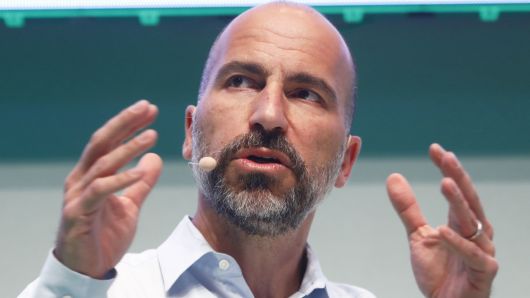
After Dara Khosrowshahi replaced Travis Kalanick as CEO last fall, Uber pledged to follow a philosophy of being kinder and gentler and to reform itself.
New York City Council passed regulations on ride-hail companies such as Uber and Lyft on Wednesday, capping the number of vehicles on the road for one year and requiring that drivers be paid a minimum wage.
The year-long cap on new licenses for ride-hailing vehicles will take place while the Taxi and Limousine Commission (TLC) studies the effects of ride-hail services in the city. The cap will not apply to new wheelchair-accessible vehicles or new vehicles serving an area demonstrating need in a way that does not increase congestion.
App-based ride services account for 80,000 vehicles in New York City, and provide 17 million rides per month, according to a study by The New School for the TLC. A surge in ridership has coincided with increased resident frustration with the local subway system.
Supporters of a cap have said the regulations will protect drivers, fairly regulate the industry and reduce congestion.
“Our city is directly confronting a crisis that is driving working New Yorkers into poverty and our streets into gridlock,” New York Mayor Bill de Blasio said in a statement. “The unchecked growth of app-based for-hire vehicle companies has demanded action – and now we have it.”
But opponents say the regulations could result in longer wait times and higher prices for ride-hail services.
“The City’s 12-month pause on new vehicle licenses will threaten one of the few reliable transportation options while doing nothing to fix the subways or ease congestion,” Uber said in a statement. “We take [Council Speaker Corey Johnson] at his word that the pause is not intended to reduce service for New Yorkers and we trust that he will hold the TLC accountable, ensuring that no New Yorker is left stranded.”
Indeed, Lyft’s vice president of public policy Joseph Okpaku said the cap could be harmful for communities underserved by yellow cabs.
“These sweeping cuts to transportation will bring New Yorkers back to an era of struggling to get a ride, particularly for communities of color and in the outer boroughs,” he said in a statement. “We will never stop working to ensure New Yorkers have access to reliable and affordable transportation in every borough.”

